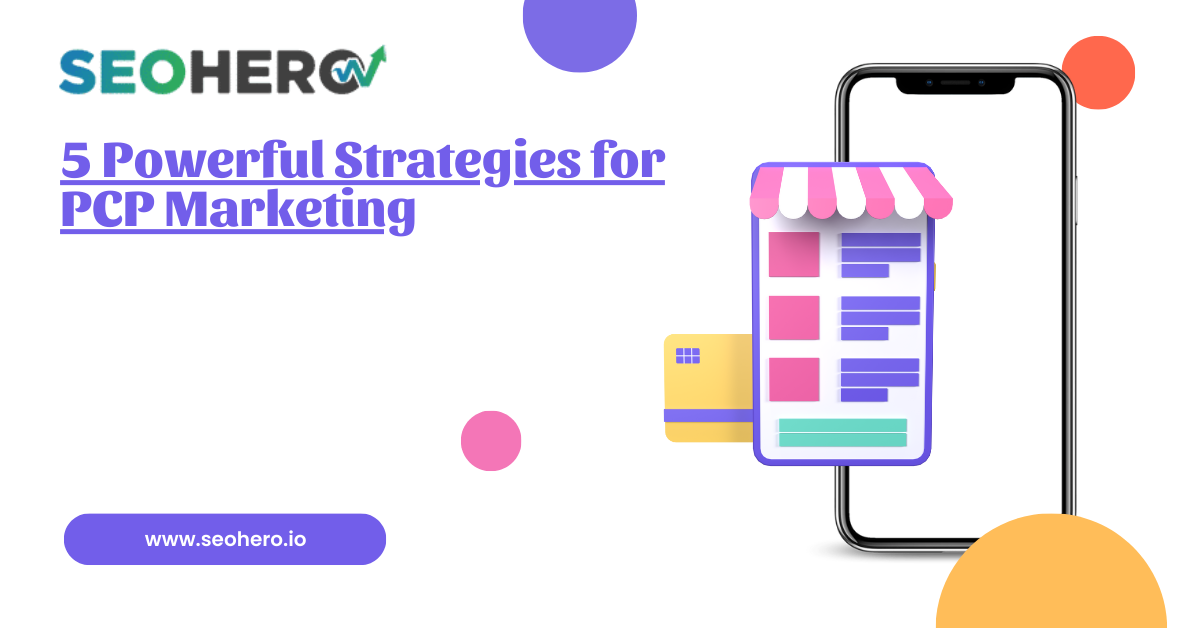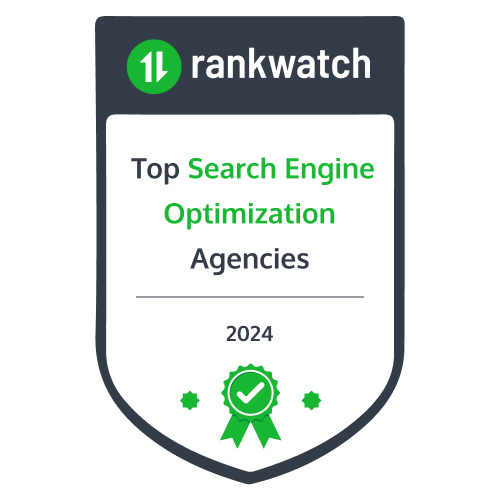
5 Powerful Strategies for PCP Marketing
You must have read about proper company promotion (PCP) marketing somewhere, including the claims that it replaces search engine optimization (SEO). Does it, though? And what exactly is it?
Read on because this post tells all and provides you with five actionable and powerful PCP marketing strategies to execute.

PCP Marketing: Value-Driven Link-Building
On the surface, PCP marketing is just link-building with a new name. On the one hand, it pertains to a whole universe of activities you do to earn backlinks that can boost your SERP ranking. On the other hand, it’s not traditional link-building at all, especially since PCP marketing has different metrics for evaluating link-building effectiveness.
As such, artificial link-profile enhancement strategies, such as creating private blog networks, purchasing links on link farms, and spamming directories, forums, and comment threads, do not belong in PCP marketing. The goal is no longer to get as many backlinks as possible but to earn backlinks that send traffic—actual readers and warm bodies.
The old rule of “the more links, the better” still applies, but on one condition: Only backlinks that generate traffic count toward your search rankings.
PCP marketing is strategic link-building. But we shouldn’t classify it as one of the link-building strategies. Under this new link-building “regime,” the unity between backlinks and website value is restored. Backlinks regain their old meaning—a vote of confidence, an acknowledgment of merit, and an endorsement of credibility—so they make excellent ranking signals.
PCP marketing has other additional implications. The importance of offering and adding value cannot be overstated.
If you want backlinks that will bring you website traffic and thus contribute towards your SERP rankings, you must offer something to make other sites want to link to you and, more importantly, get their readers sufficiently interested to follow through.
PCP marketing has also outgrown its original emphasis on backlinks. Its focus has shifted to encompass traffic, loyalty, and conversions. While earning traffic-generating backlinks is still vital, it’s no longer its sole objective but just one of the things PCP marketing aims to accomplish.
Takeaway: PCP marketing entails earning backlinks that generate traffic, demonstrating that your site provides value, ultimately, albeit indirectly, boosting your SERP rankings.
Specific and Actionable PCP Marketing Strategies
Time to roll up your sleeves and get to work.
Remember that the goal of PCP marketing is to earn backlinks that send traffic to your website. In line with this, try the following specific and actionable strategies:
Organize Events
An event can create a buzz that will get you talked about offline and online. Journalists will mention you in their articles, publishers on their blogs, vloggers in their reels and Toks, and social media influencers on their posts, leaving a trail of links (like breadcrumbs) people can follow to your website.
People will want to click on these links because they want to participate or are curious about it. Consequently, this strategy will get you what you need: backlinks that bring in traffic.
You have virtually unlimited event options, such as the following:
- Walk, run, marathon, or triathlon events for a cause: Any of these activities appeal to the (young) urban crowd. Invite non-competing brands to become event sponsors; they can help with the expenses and fill your swag bags with product giveaways. Invite news outlets, publishers, and influencers to be your media sponsors; they’ll help with exposure and promotions pre- and post-event.
- Fundraising dinners: Invite prominent people in your community to a fundraising dinner or gala. A plate could cost an exorbitant amount of money—that would be an effective talking point, although this tactic calls for caution because you could be called out for extravagance.
- Clean-up drive and tree-planting events: Your employees and volunteers can clean the beach, collect trash from the sea, or plant mangroves and trees. This is a newsworthy event, and it can make quite a splash if it’s well-attended.
- Concerts: You can hold a concert for a cause or profit. If the artist is someone the public wants to see or hear, they will talk about your event regardless.
- Interactive experiences: You can set up an interactive museum, an exhibit of performing and talking robots, a car show where people can take cars out for a spin at the lot, and a cosplay where people can dress up on the spot and get makeovers. You can also set up a one-day-only pop-up restaurant or shop.
- Hackathons: A hackathon is a no-brainer for a tech company. It’s on-brand, industry-aligned, and attracts an audience of (and links from) industry players and tech professionals.
- Fairs or festivals: Organize a food or hot-air balloon festival (or a combo of these), a fireworks show, a trade show, or a community market—anything that can bring people together for fun and fond memories.
- Product launches: These are a good opportunity to earn traffic-generating backlinks. Consider how much hype the launch of a new iPhone generates; this means a lot of backlinks. These backlinks, meanwhile, are click magnets—which translate to traffic—because people are naturally curious about Apple’s newest iPhone iteration.
You must be selective, discerning, and smart about your event choice, which must account for your products, service, brand, market, and industry.
For example, it will take a lot of maneuvering to justify a pop concert for a CPAP machine manufacturer, but a triathlon makes perfect sense for an activewear company.
Prepare well and ensure everything goes according to plan. More importantly, you should test the soundness of your ideas.
This was a lesson the South Korean electronics manufacturer LG learned the hard way in 2013 when it organized “G in the Cloud,” an event to promote its new smartphone by launching hundreds of balloons into the sky, some of which contained coupons that could be exchanged for the 950,000-won G2 phone.
Unfortunately, some people shot at the balloons with ball-bearing (BB) guns or stabbed them with knives. In the resulting chaos, which the security on the ground could not control, 20 people were injured.
One final reminder when holding an event for a cause: authenticity is a requirement.
Look at Dove’s “Real Beauty” campaign—technically not an event, but it perfectly illustrates the point. Initially, it was well-received. However, eventually, questions were raised about Dove’s sincerity in encouraging people to be comfortable in their own skin because Dove’s parent company, Unilever, does the opposite by marketing some of its products using unattainable and unrealistic beauty standards. Therefore, pick a cause you truly believe in, or your event can backfire.
Help Your Community
Community outreach programs are another powerful way to earn backlinks that are aligned with the principles of PCP marketing. Example projects include:
- Sponsoring free medical services
- Sponsoring free engineering consultation
- Sponsoring educational scholarships and mentorship programs
- Sponsoring skills enhancement workshops
- Sponsoring community arts and music programs.
- Building a community park
- Creating a community garden and initiating urban farming initiatives
- Providing employees with leave credits to use for volunteering in community projects.
- Contributing money, equipment, supplies, and other resources during disaster relief operations
Helping one’s community is a worthwhile strategy because it has a direct, positive, and demonstrable impact on your community. It can influence your target market’s buying decisions since your potential customers may choose you over your competitor because they like what you’re doing or have heard positive things about you from people they trust.
Beyond branding, community outreach initiatives create backlinking opportunities. You can write about your community outreach efforts on your owned media, e.g., your website and social media channels. If the self-promotion process ever gets stuck, you can always refer to different social media post ideas and test new things.
You can regularly post progress reports or updates—e.g., land clearing for your community park or garden, interviews for your scholarship program, requisitioning of supplies for your disaster ops, etc.
Your activities can get picked up by the media, publishers, and online influencers, and project recipients can write about you, too. In order to maximize your efforts, you can use different data collection methods to calculate which one of your activities is the most likable to people and most engaging.
You can help the process along by letting your contacts know so that they can cover your program in their publications and social media channels. All these can lead to genuine, high-quality backlinks that can generate traffic for your website.
Create Digital Tools and Templates
Digital tools and templates can be an excellent source of traffic-generating backlinks.
Are you a social media company? You can create a real-time trends tracker on your website. Those who are interested can share the tracker online, and those links can send traffic back to your website.
Are you a business consulting company? You can provide free financial statement templates for business owners. Distribute your templates in various places online, and encourage people to share them on their blogs and socials.
If you are a development company, you can go with as popular products as WordPress plugins. Imagine creating a WordPress quiz plugin for easy quiz-making: you can ask all of its users to post about it on their social media profiles. Even more, they will do it without asking if they are happy about the tool.
Ensure your templates are shareable, have backlinks, and let users know you have more free templates (e.g., request for a quote, presentation, business plan, feasibility study, risk analysis, etc.) available on your website.
An infographic maker is a good tool. Publishers need infographics for their own content, and you can help them in exchange for a backlink on the resulting infographics. People who want to use your tool can click on those links to reach your website.
Caveat: An infographic generator is a good idea if you’re a branding, design, or tech company. It may not be as suitable if you’re in an unrelated or irrelevant niche. That said, there’s a workaround. You can make your tool niche-specific so a brokerage firm can create an infographic builder for investors, investment firms, and other industry players.
Of course, people must know about your tools and templates, so promote them extensively. To do this, you can:
- Write a press release and distribute it to publishers and media outlets.
- Talk about your tools and templates on your blogs and social media posts.
- Encourage users to share your tools and templates on their digital channels.
- Highlight user-generated stories (share and write releases on them) that emphasize the value of your tools and templates.
As long as they offer value to your target market, digital tools and templates can earn you not only backlinks but also traffic.
Collaborate With Industry Experts on Expert Roundups
Work with experts in your industry to write comprehensive guides or thought pieces on niche topics.
Are you an architecture firm? Gather a handful of construction professionals—interior designers, landscaping consultants, engineers, and other architects—to write a collaborative piece on biophilia and biophilic designs.
Are you an SEO? Create a collaborative piece with other SEOs on Google’s latest algorithm update or the impact of artificial intelligence on the way people search.
It would be quite the coup if you could get Rand Fishkin of Moz, Jenise Uehara Henrikson of Search Engine Journal, and Gael Breton of Ahrefs, among other industry giants, to weigh in on your roundup.
There are several ways writing a collaborative article with other experts in your field can be a winning PCP marketing strategy:
- Earn backlinks from your collaborators. Your collaborators will want to publish your well-written roundup on their blogs, websites, newsletters, and social media channels.
- Gain high-authority, highly relevant backlinks. If your expert co-authors share your article on their channels, you will gain backlinks from high-authority sites. These links will be highly relevant, too, since they will be on industry websites.
- Enhance your credibility and authority. An adage says, “Tell me who your friends are, and I’ll tell you who you are,” and it applies in this case. If experts in your industry are willing to work with you, they must value what you have to say. This subtle acknowledgment of your expertise will boost your credibility and authority in your industry.
- Generate traffic. Since your roundup offers exceptional value, it will naturally draw in traffic.
Publish an Original Report
Think about industry insights or information that will pique the interest of the media and the public and write a report on it. The content should be original, the product of your own research, study, survey, or experiment.
Informa Connect Academy, a corporate training and learning courses provider, recently wrote a report on the world’s trillion-dollar club. Among other things, it predicted which individuals will likely become the world’s first five trillionaires (by the way, Elon Musk is first).
Global news organizations, such as The Guardian, CNN, Fortune, and many more, picked up the report, generating an invaluable array of top-tier, traffic-generating backlinks for the company.
Think of something similar for your company. A neurofeedback clinic can compile anonymous, impersonal data and track long-term progress on neurofeedback results. This should be interesting to medical publications and medical professionals, particularly those in mental health.
If you’re a manufacturer of blinds and shutters, you can write a report on the most popular window treatments based on your sales data. You can also conduct a survey of homeowners and interior decorators on the topic.
Even better, you can test the energy efficiency of different window treatments. You can set up multiple rooms with identical characteristics, including the orientation, amount of sunlight, finishing, heater, air-conditioner, etc., varying only in the type of window treatments used. You can then log the electricity consumption per room for several months. You can also continuously monitor indoor temperature and the amount of natural light that can penetrate the rooms.
The longer the study period and the more exacting the study parameters, the better. Such a study will provide valuable data that homeowners and members of the media will find compelling, especially since energy efficiency and sustainability are concerns many people can get behind.
Make sure your data and conclusions are unassailable and your report is well-written. Try to get maximum mileage and exposure from your report by pitching it to publishers and media outlets.
PCP Marketing: Compel Links and Clickthroughs
PCP marketing entails earning backlinks that generate traffic. To accomplish this, you need PCP marketing strategies that create value for the public, particularly your target audience. If you do something people like, news outlets and other online personalities will want to cover it (and give you a backlink). After all, they do what they do because they also want the attention and interest of the public.
Organizing events, helping your community, creating digital tools and templates, collaborating on expert roundup content, and publishing a report on original research are powerful PCP marketing strategies because they offer value to the public, particularly your audience.
Of course, implementing these strategies is not enough. You must let the world know what you’re doing instead of passively waiting for the world to discover you. This is why you have to support your PCP marketing activities with active online and offline promotions.
In line with this, write and distribute press releases, regularly post related activities on your owned and paid media, encourage other people to write about you, share user-generated content on your brand’s channels, and tap into journalist, publisher, and influencer networks. And if you need help, remember that SEOHero Services are always available.
References
https://www.sitecentre.com.au/blog/history-of-google-search
https://en.wikipedia.org/wiki/PageRank
https://knowledge.wharton.upenn.edu/article/the-marketing-psychology-behind-celebrity-endorsements/
https://mailchimp.com/resources/what-is-backlinking-and-why-is-it-important-for-seo
https://www.zoho.com/backstage/thegreenroom/5-epic-event-management-fails-from-the-2010s.html
https://www.koreatimes.co.kr/www/tech/2024/11/129_140868.html




